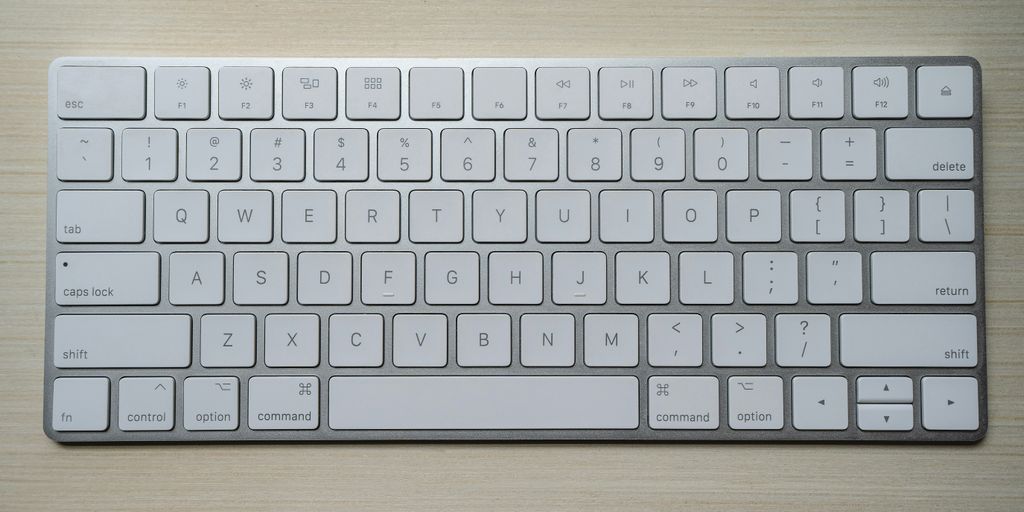So, you wanna build a PC, huh? It’s a pretty cool project, but figuring out all the parts and making sure they play nice together can feel like a lot. Good news is, there’s a huge community out there ready to help, especially on Reddit, and tools like PC Part Picker make things way easier. This guide will walk you through how to use places like pc part picker us reddit to get your dream machine put together without too much headache.
Key Takeaways
- PC Part Picker helps you pick compatible parts.
- Reddit has communities for PC building advice.
- Plan your budget and what you’ll use the PC for.
- Get feedback on your build from others.
- Know how to ask good questions to get the best help.
Understanding PC Part Picker US Reddit
The Role of PC Part Picker in Building
PC Part Picker is a website that helps you pick out computer parts. It’s a big deal for anyone trying to build a PC, whether you’re just starting or you’ve done it a bunch of times. The site lets you put together a list of components, like your CPU, graphics card, motherboard, and memory, and then it checks if they’re all compatible. This is super helpful because there are so many different parts out there, and it’s easy to pick something that won’t work with another piece of hardware. It also shows you prices from different stores, so you can find the best deals. It’s basically your go-to spot for making sure all your computer parts play nice together and you’re not spending too much money.
Navigating the Reddit Community
Reddit is a huge online place where people talk about all sorts of things, and PC building is one of the most popular topics. It’s broken down into smaller groups called subreddits, each focused on a specific subject. For PC building, you’ll find a bunch of these. It can feel a bit overwhelming at first, but once you get the hang of it, it’s a great spot to get advice and see what other people are doing. Think of it like a giant forum where everyone is really into computers. You can ask questions, share your build ideas, and even help others out if you know your stuff. Just remember to be polite and follow the rules of each subreddit.
Key Subreddits for PC Building Advice
When you’re looking for help with your PC build on Reddit, there are a few main places you’ll want to check out. These subreddits are full of people who love talking about computer parts and helping others. Here are some of the most useful ones:
- r/buildapc: This is probably the biggest and most active subreddit for PC building. You can post your planned build, ask for advice, and get feedback from a ton of experienced builders. It’s a good starting point for almost any question you have.
- r/buildapcforme: If you’re not sure where to even begin, this subreddit is perfect. You tell them your budget and what you want to use the computer for, and people will suggest full builds for you. It takes a lot of the guesswork out of it.
- r/hardwareswap: This isn’t for advice, but it’s a great place to buy or sell used computer parts. You can often find good deals here, but always be careful and check seller ratings.
- r/bapcsales: This subreddit focuses on deals and sales for PC components. If you’re looking to save some money, keep an eye on this one. People post links to sales from various retailers, so you can snag a good price on that new graphics card you’ve been eyeing.
These communities are super helpful, but always remember to do your own research too. What works for one person might not be the best for you, so take suggestions as a starting point and then dig a little deeper.
Planning Your PC Build on Reddit
Building a PC can feel like a big puzzle, especially when you’re just starting out. Reddit is a great place to get ideas and help, but you gotta go in with a plan. It’s not just about picking cool parts; it’s about making sure everything works together and fits what you need. Think of it like building a house – you wouldn’t just buy random bricks and hope for the best, right? You’d figure out what kind of house you want, how much you can spend, and then get the right materials. Same idea here.
Setting a Realistic Budget
First things first, you gotta figure out how much money you’re willing to spend. This is probably the most important step because it’s going to narrow down your choices a lot. Don’t just pull a number out of thin air; think about what you can comfortably afford without breaking the bank. Remember, it’s not just the parts; you might need a monitor, keyboard, mouse, and even an operating system. Those things add up fast. A good rule of thumb is to allocate about 40-50% of your budget to the CPU and GPU combined, as these are often the most expensive and impactful components. Once you have a number, stick to it. It’s super easy to get carried away when you see all the shiny new tech out there. Reddit can help you find deals and suggest alternatives if your dream build is a bit out of reach. They’re pretty good at finding ways to save a few bucks without sacrificing too much performance.
Identifying Your Primary Use Case
Before you even think about specific parts, you need to know what you’re going to use this PC for. Are you a hardcore gamer who needs every frame per second? Or are you more into video editing and need a lot of processing power? Maybe you just need something for schoolwork and browsing the internet. Your use case dictates everything. For example:
- Gaming: You’ll want to prioritize a strong graphics card (GPU) and a capable processor (CPU). High refresh rate monitors are also a big deal here.
- Content Creation (Video Editing, Streaming): A powerful multi-core CPU is key, along with plenty of RAM. A good GPU is still important, but maybe not as much as for pure gaming.
- General Productivity/Office Work: You can get away with much less expensive components. An integrated GPU might even be enough, saving you a lot of money.
Being clear about this helps the Reddit community give you much better advice. If you just say "I want a PC," they won’t know where to start. Tell them what games you play, what software you use, or what tasks you’ll be doing most often. This helps them tailor suggestions to your actual needs, rather than just recommending the most popular or expensive parts.
Researching Compatible Components
Okay, so you’ve got your budget and you know what you’re using the PC for. Now comes the fun part: looking at components. This is where Reddit really shines. People there are constantly talking about the latest CPUs, GPUs, motherboards, and RAM. But here’s the thing: not all parts work together. You can’t just slap any CPU into any motherboard. There are different sockets, chipsets, and memory types. It’s a bit like trying to put a square peg in a round hole. You’ll want to look into things like:
- CPU Socket Type: Does your chosen CPU fit your motherboard? (e.g., LGA 1700 for newer Intel, AM5 for newer AMD).
- RAM Compatibility: Does your motherboard support the type and speed of RAM you want? (e.g., DDR4 vs. DDR5).
- Power Supply Wattage: Does your power supply have enough juice to power all your components, especially that AMD Radeon RX 480 GPU you’re eyeing?
PC Part Picker is an amazing tool for this, as it automatically checks for compatibility issues. But Reddit can help you understand why certain combinations are good or bad, and they can offer real-world experiences with different parts. They might tell you that a certain RAM kit has known issues with a specific motherboard, or that a particular CPU cooler isn’t quite enough for the processor you picked. It’s all about getting that real-world insight that you won’t find on a spec sheet. Don’t be afraid to ask questions, even if they seem basic. Everyone starts somewhere, and the community is generally pretty helpful if you show you’ve done a little bit of your own homework first.
Leveraging Community Expertise
Building a PC can feel like a big puzzle, especially when you’re trying to pick out all the right parts. That’s where the Reddit community comes in handy. It’s a place where a lot of people who know their stuff hang out, ready to help you figure things out. You can get some really good advice, and it often saves you from making mistakes that cost money or time. It’s not just about getting answers; it’s also about learning how to think about PC parts and what makes a good build.
Posting Your Build for Feedback
When you’ve got a list of parts you’re thinking about, putting it out there for others to see is a smart move. People on Reddit are usually happy to look over your choices and tell you what they think. It’s like having a bunch of experts check your homework before you turn it in. Make sure your post is clear and easy to read. You want to give them all the important details without making them dig for it. Think about including:
- Your budget range
- What you plan to use the PC for (gaming, work, etc.)
- Any specific parts you already have or want to use
- Your current PC Part Picker list link
Interpreting Community Suggestions
Once you get feedback, you’ll see a mix of ideas. Some people might suggest small tweaks, while others might recommend big changes. It’s important to understand why they’re suggesting what they are. Don’t just blindly accept every idea. Look for patterns in the advice. If several people are saying the same thing, there’s probably a good reason for it. Sometimes, people will even explain the pros and cons of different parts, which helps you learn a lot. Remember, the goal is to get a better build, not just to agree with everyone.
Asking Specific Questions Effectively
If you’re stuck on a particular part or a specific problem, asking a focused question is the way to go. Instead of a general "Is this good?" try something like "Should I go with the [CPU A] or [CPU B] for 1440p gaming at 144Hz?" The more specific you are, the better the answers you’ll get. It shows you’ve done some thinking already and just need a little push in the right direction. For example, if you’re wondering about power delivery for a high-end GPU, you might ask about specific PSU models or wattage recommendations. Safeguarding game files is also a good idea for any PC builder. Here are some tips for asking good questions:
- Be clear and concise.
- Provide context for your question.
- Mention what you’ve already tried or considered.
- Be open to different viewpoints.
- Thank people for their help.
Optimizing Your Component Selection
Building a PC is a bit like putting together a puzzle, but instead of a picture, you’re making a super-fast machine. It’s not just about picking the most expensive parts; it’s about making sure everything works together nicely. You want to get the most bang for your buck, right? That means really thinking about what each piece does and how it fits into the bigger picture. It’s easy to get caught up in the hype of the latest and greatest, but sometimes, a slightly older model or a different brand can give you almost the same performance for a lot less cash. The goal is to create a balanced system where no single component bottlenecks the others, ensuring smooth operation and optimal performance for your specific needs.
Choosing the Right CPU and GPU
When you’re picking out your CPU and GPU, it’s like choosing the engine and wheels for a car. They’re the core of your system, especially if you’re into gaming or heavy-duty tasks like video editing. You don’t want a super powerful engine with tiny wheels, or vice versa. For example, a high-end graphics card paired with a budget CPU might mean your CPU can’t keep up, leaving your GPU underutilized. On the flip side, a top-tier CPU with an entry-level GPU won’t give you the best gaming experience. It’s all about finding that sweet spot. Think about what you’ll be doing most often. If it’s gaming, you’ll probably want to prioritize the GPU. If it’s more about productivity and multitasking, a stronger CPU might be the way to go. You can find some great PC build options that show how different CPUs and GPUs are paired up.
Selecting Compatible Motherboards and RAM
Okay, so you’ve got your CPU and GPU sorted. Now, you need a motherboard that can handle them. The motherboard is like the central nervous system of your PC; everything connects to it. You need to make sure the CPU socket type on the motherboard matches your CPU. Also, check the RAM slots. Not all RAM works with all motherboards. You’ll see terms like DDR4 or DDR5, and those need to match. And don’t forget about the number of RAM slots and the maximum capacity the motherboard supports. More RAM generally means better multitasking, but there’s a point of diminishing returns. For most users, 16GB is a good starting point, but if you’re doing really intensive stuff, 32GB or even 64GB might be worth it. Here’s a quick checklist for motherboard and RAM compatibility:
- CPU Socket Type: Ensure it matches your chosen CPU (e.g., LGA 1700 for Intel, AM5 for AMD).
- RAM Type: Verify the motherboard supports the correct RAM generation (e.g., DDR4 or DDR5).
- RAM Speed Support: Check the maximum RAM speed (MHz) the motherboard can handle.
- Number of RAM Slots: Consider how many RAM sticks you plan to use and if the motherboard has enough slots.
- PCIe Slots: Make sure there are enough PCIe slots for your GPU and any other expansion cards you might want.
Considering Storage and Power Supply Needs
Storage and power supply might not be as exciting as CPUs and GPUs, but they’re super important. For storage, you’ve got a few choices: traditional hard drives (HDDs), solid-state drives (SSDs), and NVMe SSDs. HDDs are cheap and offer lots of space, but they’re slow. SSDs are much faster and great for your operating system and frequently used programs. NVMe SSDs are the fastest of the bunch, perfect for gaming or professional applications where load times matter. Most people go for a combination: a smaller, fast SSD for the operating system and a larger HDD for general storage. As for the power supply unit (PSU), it’s literally the heart of your system, providing power to all your components. You need to make sure it has enough wattage to power everything, with a little extra headroom for future upgrades. Don’t skimp on the PSU; a cheap, unreliable one can cause all sorts of headaches down the line. Look for PSUs with good efficiency ratings (like 80 Plus Bronze, Gold, or Platinum) as they waste less energy and generate less heat.
Troubleshooting and Post-Build Support
Building a PC is one thing, but keeping it running smoothly and dealing with problems when they pop up is a whole other ballgame. It’s easy to feel lost when your brand-new machine decides to act up, or when you just want to make sure it stays in top shape. Luckily, the Reddit community is a pretty good spot to get some help, whether you’re facing a total system crash or just trying to figure out what that weird noise is.
Addressing Common Build Issues
So, you’ve put everything together, hit the power button, and… nothing. Or maybe it turns on, but there’s no display. These are super common first-time build issues, and honestly, they happen to everyone. The key is to not panic and systematically check things. A lot of times, it’s something simple you overlooked.
Here’s a quick checklist of things to look at:
- Cables: Are all power cables fully seated? Did you plug in the CPU power, the 24-pin motherboard power, and any GPU power cables? Double-check display cables too.
- RAM: Is the RAM fully clicked into place? Sometimes it takes a bit more force than you’d think. Try reseating it, or even testing one stick at a time if you have multiple.
- GPU: Is the graphics card properly seated in its PCIe slot? Is the power cable connected if it needs one?
- Motherboard Stand-offs: Did you use the correct number of stand-offs, and are they in the right spots? Short circuits from misplaced stand-offs can cause all sorts of headaches.
- Front Panel Connectors: These tiny wires for power, reset, USB, and audio can be a pain. Make sure they’re connected to the correct pins on the motherboard, usually labeled clearly in your motherboard manual.
If you’re still stuck, taking clear photos or a short video of your setup can really help others on Reddit diagnose the problem. People often spot things you might miss.
Seeking Help for Performance Problems
Alright, your PC boots up, but maybe games are stuttering, or applications are running slower than you expected. This is where performance troubleshooting comes in. It’s not always about a broken part; sometimes it’s software, drivers, or even just settings.
When asking for help with performance, try to provide as much detail as possible:
- Specific Symptoms: Is it low FPS in games? Frequent crashes? Slow boot times? Be precise.
- Component List: Always include your full PC specs. This helps people understand what hardware they’re dealing with.
- Recent Changes: Did you just install a new driver? Update Windows? Add a new component? Sometimes the problem started right after a change.
- Monitoring Tools: Use tools like HWMonitor or MSI Afterburner to check CPU/GPU temperatures and usage while you’re experiencing the issue. Overheating is a common culprit.
Reddit users are pretty good at suggesting diagnostic steps, like running benchmarks, checking event logs, or even recommending specific driver versions. It’s a bit like being a detective, gathering clues to find the root cause. For example, if your CPU is constantly at 100% usage, that’s a different problem than if your GPU is barely being utilized.
Finding Resources for Upgrades and Maintenance
Your PC isn’t a static thing; it’s a living machine that can be improved and needs regular care. Reddit is a fantastic place to figure out what to upgrade next or how to keep your system running smoothly. People are always discussing the latest hardware and sharing tips for maintenance.
For upgrades, you’ll often see discussions about:
- Compatibility: "Can I put this new GPU with my old CPU?" or "Will this RAM work with my motherboard?" These are common questions, and the community can help you figure out if your planned upgrade makes sense.
- Bottlenecks: Understanding if your CPU is holding back your GPU, or vice-versa, is important for smart upgrades. Reddit can help you identify potential bottlenecks in your current setup.
- Value: People love to debate the best value components for different budgets. You can get a lot of opinions on whether a certain upgrade is worth the money.
When it comes to maintenance, you’ll find advice on:
- Cleaning: How often should you clean your PC? What’s the best way to dust it? What about thermal paste?
- Software Updates: Keeping drivers and Windows updated is important, but sometimes a specific update can cause issues. The community often shares warnings or solutions for problematic updates.
- General Health: Tips on managing storage, optimizing startup programs, and keeping your system lean and fast. It’s all about preventing problems before they start, kind of like how you’d avoid common house cleaning mistakes by knowing what to do beforehand.
Best Practices for Engaging on Reddit
Formulating Clear and Concise Posts
When you’re putting together a post on Reddit, especially in a place like r/buildapc, it’s really important to be clear about what you’re asking. People on Reddit are usually happy to help, but they can’t read your mind. So, if your post is vague, you might not get the kind of help you need. Think about it like this: if you’re asking for advice on a PC build, don’t just say "Is this good?" Instead, give them the full picture. A well-structured post gets better responses.
Here’s what to include for a good build request:
- Budget: How much money are you looking to spend? Be specific. Is it $800, $1500, or $3000? This helps people suggest parts that actually fit your wallet.
- Primary Use: What will you be doing with this PC? Gaming? Video editing? Just browsing the internet? Knowing this helps tailor component suggestions. For example, a gaming PC needs a strong graphics card, but a work PC might prioritize CPU and RAM.
- Current Parts (if any): Do you already have a monitor, keyboard, mouse, or even some internal components you want to reuse? List them out. This saves you money and helps avoid compatibility issues.
- Specific Questions: What exactly do you want to know? Are you unsure about a specific CPU/GPU combo? Do you need advice on cooling? The more direct your questions, the easier it is for others to answer.
Being Respectful and Open to Feedback
Reddit is a community, and like any community, it works best when everyone is respectful. When you get feedback on your build or questions, try to keep an open mind. Not everyone will agree, and that’s okay. Sometimes, people might suggest things you hadn’t thought of, or they might point out a flaw in your plan. It’s not about being right; it’s about getting the best possible PC for your needs. If someone offers a different opinion, ask them why. Understand their reasoning. You don’t have to agree with everything, but being dismissive won’t help you learn or get better advice. Remember, the goal is to learn and improve your build, not to win an argument. This kind of interaction is part of what makes building blocks and LEGO so engaging for many people.
Contributing Back to the Community
Once you’ve gotten your PC built and you’re happy with it, consider giving back to the community that helped you. This could mean a few things. Maybe you can answer questions from new builders, sharing your own experiences. Or perhaps you can post your completed build with pictures and a breakdown of what you learned. It’s a great way to show appreciation and help others who are just starting out. The more people contribute, the stronger and more helpful the community becomes. It’s a cycle: you get help, you learn, and then you help others. This makes the whole experience better for everyone involved.
Wrapping Things Up
So, that’s pretty much it. You’ve got the rundown on how to use PC Part Picker with Reddit. It might seem like a lot at first, but honestly, once you get going, it’s not so bad. Just remember to double-check everything, ask questions if you’re stuck, and don’t be afraid to change your mind. Building a PC is a fun project, and with a little patience, you’ll have something awesome. Good luck with your build!
Frequently Asked Questions
What is PC Part Picker?
PC Part Picker is a super helpful website that lets you pick out computer parts and makes sure they all work together. It’s like a shopping list for building a computer, but smarter, because it tells you if parts are compatible.
What is Reddit?
Reddit is a huge online community where people talk about all sorts of things. For PC building, it’s a place where you can ask questions, get advice, and share your computer builds with others who love computers too.
How do I start planning my PC build?
You should figure out how much money you can spend. This helps you choose parts that fit your budget. Also, think about what you’ll use the computer for, like playing games, doing schoolwork, or editing videos. This helps pick the right parts.
Can I get feedback on my parts list?
Yes! Once you pick out some parts, you can share your list on Reddit. Other people who know a lot about computers can look at your list and tell you if it’s good or if there are better choices. It’s like getting free expert advice.
What are the most important parts to choose?
The CPU (Central Processing Unit) is like the computer’s brain, and the GPU (Graphics Processing Unit) is for showing pictures and videos, especially for games. You want to pick ones that are good for what you want to do and that work well with your other parts.
What if I have problems after I build my PC?
If your computer isn’t working right, or if you have problems after you build it, you can ask for help on Reddit. Lots of people there have faced similar issues and can give you tips on how to fix things or make your computer run better.












